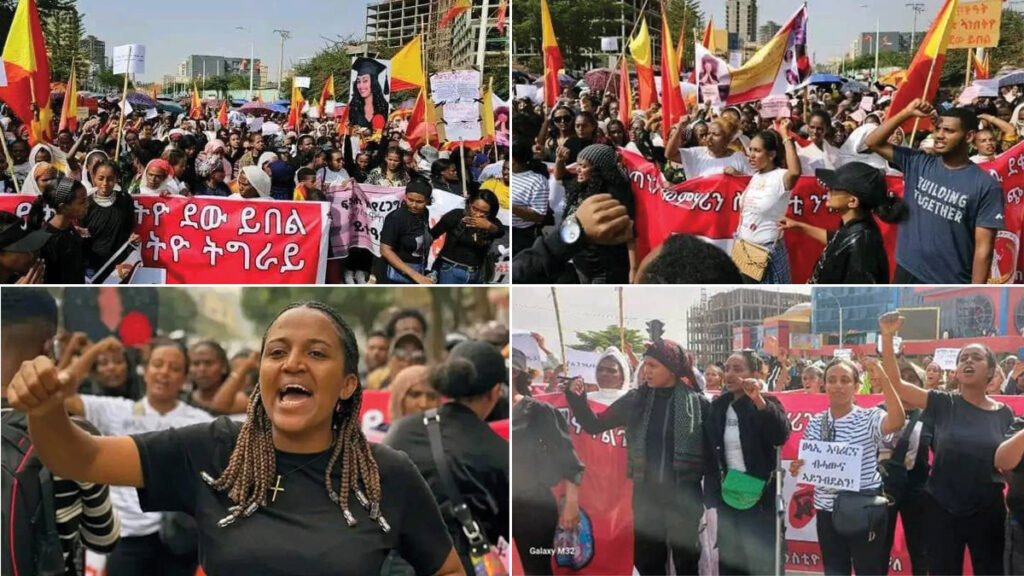A significant demonstration took place in Mekelle, organized by women demanding an immediate end to violence against women in the region. The protestors passionately called for justice for victims of sexual violence, kidnappings, and other forms of abuse. This event drew attention to the longstanding physical and psychological trauma endured by victims, highlighting the urgent need for societal protection and accountability.
Semhal Kid, a prominent organizer of the demonstration, voiced concerns about the continuous atrocities faced by women and girls at the hands of various fighting forces. Their demands for an end to injustice resonate with historical struggles for women’s rights worldwide. Birikti Hailu, another participant, emphasized the collective failure of society to protect women, underscoring the importance of ending ongoing violence.
The demonstrators marched from Romanat Sequer to the office of the Tigray Interim Administration, seeking to address their grievances with regional authorities. While they were unable to meet with Getachew Reda, the president of the administration, Hadush Tesfa from the regional justice bureau actively engaged with their demands. Hadush acknowledged the imperative of women’s safety in society and vowed to work towards upholding law and order by holding perpetrators accountable.
The demonstration in Mekelle mirrored a similar protest in Adigrat, where citizens gathered to demand an end to violence and justice for victims. The mayor of Adigrat, Solomon Hagos, expressed solidarity with the protesters and reassured them of the administration’s commitment to restoring peace and order. These localized demonstrations reflect broader global efforts to confront and address gender-based violence in conflict zones.
Historical references to women’s struggles for justice and equality underscore the significance of these contemporary demonstrations. Reports from organizations like Refugees International shed light on the alarming prevalence of gender-based violence in conflict-affected regions like Tigray, reinforcing the urgency of addressing systemic issues. The testimonies of victims and health workers provide a harrowing glimpse into the widespread impact of such violence on women and girls, emphasizing the critical need for immediate action and accountability.
